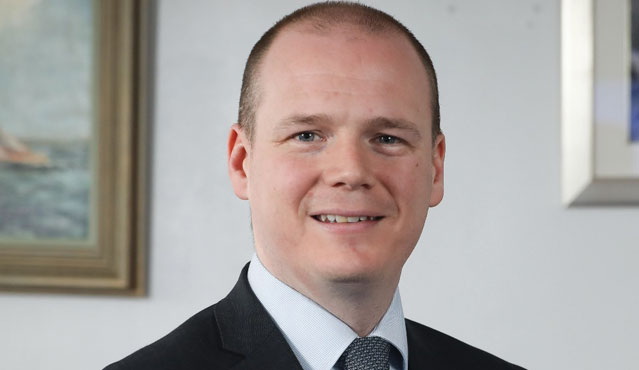Executive collaboration under scrutiny

Collective decision-making in Northern Ireland’s Executive is to once again become a source of tension after the interim Agriculture’s Minister’s decision to go on a solo run and exclude Executive colleagues in a decision to halt work on permanent border control posts necessitated by the Northern Ireland Protocol.
Temporary Agriculture Minister Gordon Lyons MLA ordered officials in his department to stop work on new permanent border control posts, which will be used to check food products coming from Great Britain and to stop recruiting staff in late February.
The decision by Lyons, whose party is opposed to the Protocol, did not disrupt ongoing Irish Sea trade checks, which are taking place in temporary facilities but could be significant for the future implementation of the Protocol.
Significantly, Lyons did not seek pre-approval from Executive colleagues on the move, who argue that the cross-cutting nature of the decision across various departments required it to be brought before the Executive.
The New Decade, New Approach agreement signed by the Executive parties at the beginning of 2020 envisaged a more harmonious decision-making process within the Executive, something which had been lacking in previous mandates.
However, Lyons’s move is the latest example of ministers wielding their autonomy and side-stepping the need for collective Executive agreement, which smaller Executive parties have been so critical of in the past.
Sinn Féin, the SDLP and the Alliance Party have all stated their belief that such a decision needs to be taken by the Executive as a whole.
Infrastructure Minister Nichola Mallon MLA described the move as a “divisive stunt” and summed up the mood of the Executive’s non-unionist parties, stating: “This is a five-party Executive facing two significant crises, a global pandemic and the impact of Brexit. We should be taking decisions together in the substantial common interests of the people we represent, not using political office for divisive stunts.
“This decision is controversial, cross-cutting and cannot be put into effect without Executive agreement,” she said.
However, the DUP continues to support its Minister’s bypassing the Executive, with party leader Arlene Foster MLA insisting that her colleague’s move can only be overturned by a court.
That court process, if pursued, will place a microscope on the cross-Executive decision-making that has been taking place since the institutions have been back operational and could place further pressure on the process of future decisions to be taken by ministers.
Lyons argued that he was responding to “practical difficulties” caused by the Protocol and has since warned the Northern Ireland Assembly that the need for Executive approval on issues relating to the Protocol will see “a lot of other things that, before my department carries them out, will have to go to the Executive and that will require the support of the Executive, before they can proceed”.
It is not the first time that the DUP’s opposition to the protocol has led to decisions taken without cross-Executive approval. Agriculture Minister Edwin Poots MLA previously moved to suspend Brexit checks at Larne and Belfast Ports, over concerns around threats to staff safety. Poots took the decision just hours before temporarily standing down from his position on health grounds and it was later revealed that the PSNI had gathered no evidence of credible threats against port workers.
Poots also sought legal guidance on whether he had the authority to instruct officials not to operate the border control posts but was advised that such a move would be unlawful.





